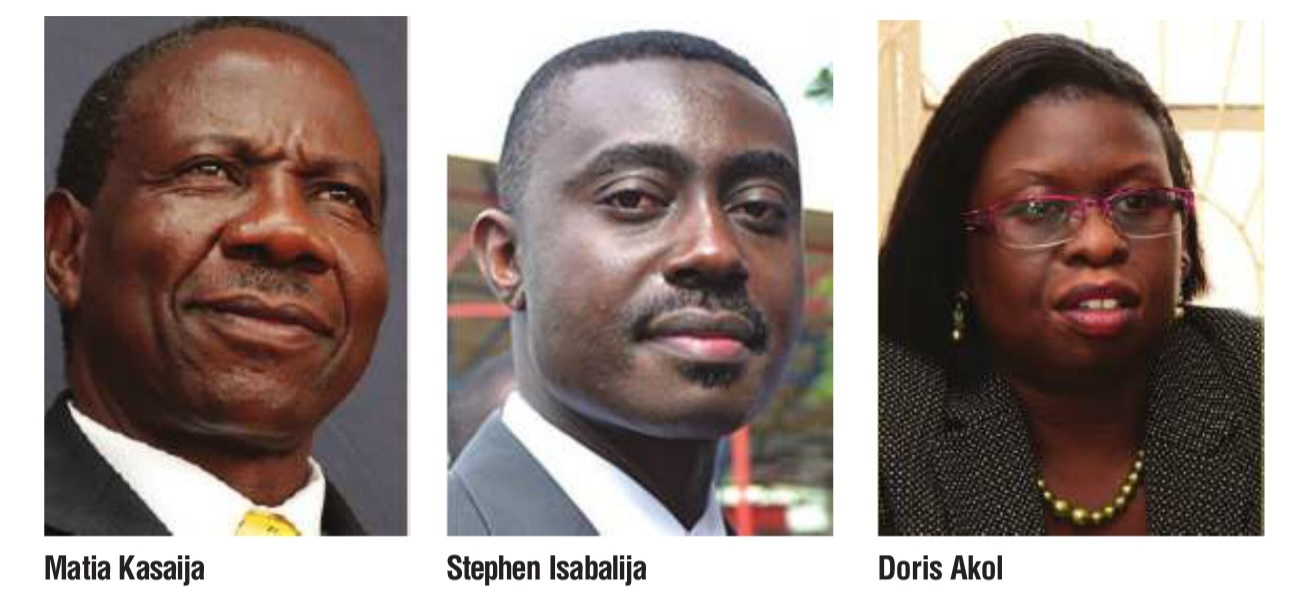
Unclear aspects to the sale of a stake of Bujagli Electricity Limited (BEL) by American company Sithe Global to Norway’s SN Power have made President Yoweri Museveni suspicious. He has asked investigators to look into certain controversies surrounding it, an investigation by The Independent reveals. At the moment, sticking issues include the nature of the shareholding in BEL, the holding company for the 250 MegaWatt hydro power plant and the desire for President Museveni to have the facility cut its unit cost of power from $ 0.11 to $ 0.05. Interestingly, even as Museveni is pushing for a cut, BEL is planning to increase the tariff to $0.14 next year when government starts charging it corporate tax as agreed in the contract.
- Museveni investigates shareholding
- Why investor wants power to cost more as Museveni pushes to halve it
- Detail of investor’s refusal to pay Shs300bn tax
Battle lines on these issues are now drawn with the President and some sector players on one side and the technocrats and investors on the other. According to informed sources, the major deal breaker seems to be the issue of Capital Gains Tax (CGT). According to the Income Tax Amendment Act 2010, CGT is levied on the profit realised from the sale of a capital asset, which is not part of the taxpayers trading stock or inventory.
In this case, Sithe Global, which invested some $ 110 million in BEL, wants to transfer all its shares to Norway’s SN Power at $ 400 million (Approx. Shs 1.4 trillion). If the transaction goes through, Sithe Global makes a profit of US$ 290 million. And it is this $ 290 million that would attract a 30 percent levy ($ 87 million or about Shs300 billion).
The Independent has seen a notice from Doris Akol, the Commissioner General Uganda Revenue Authority (URA) informing the investor about the levy.
By press time, Sithe Global had not replied to our request for a comment on the tax. But insider sources say they are opposed to it because they claim that they are not selling a stake but are merely transferring shares. But tax experts say transfer of shares is only exempt from tax if the company is listed. For instance, during the UMEME Initial Public Offer (IPO), no CGT was charged.
Finance Minister, Matia Kasaija, told The Independent he could not discuss the details of the deal as this could jeopardise the interests of the investor.
“What I can confirm is that government had found an investor and negotiations have been on-going but the issue is the disagreement on Capital Gains Tax,” he said, “you know government has had these issues in the past with the oil companies. We are saying that there we will not accept if the investor doesn’t pay the tax.”
Investigations by The Independent have since found that the Attorney General had also confirmed that the investor had to pay the tax.

It is not the first time government is disagreeing with investors over CGT. When Heritage Oil sold its stake for $1.5 billion to Tullow Oil, government levied a CGT levy of $ 404 million, which led to a tax dispute. Government won. When Tullow Oil farmed down its assets to France’s Total E&P and China’s CNOOC for $ 2.9 billion, it also got in problems with government but this time over the quantum of the tax. Again, government won.
It is on the basis of this, that officials at the Finance Ministry and URA are alluding to a precedent.
Museveni perturbed
These controversies started emerging when Sithe Global and SN Power investors came into town mid this year. Sources told The Independent that they flew to Fort Portal and met President Museveni. From there, they also flew to Chobe Lodge and met technocrats. The Independent also understands that sometime back when Kasaija was in the U.S., the officials sought audience with him. But these intense negotiations remain futile over the disagreement on the tax.
Another interesting meeting over the deal took place at State House, Entebbe in July and was chaired by President Yoweri Museveni and attended by among others, Kasaija, URA’s Akol, Uganda Electricity Generation Company Ltd (UEGCL) Stephen Isabalija, and Energy Ministry Permanent Secretary, Kabagambe Kalisa, among others.
Sources at the meeting say Isabalija presented information about the deal that the President had not been briefed on by the other participants. At one point Museveni, who looked concerned, reportedly turned to Kasaija and asked him to explain.
“Did you know this?” Museveni reportedly asked Kasaija. Kasaija shook his head and said he was not aware of the information Isabalija was presenting.
Apparently, the other technocrat who could have been in the know is Secretary to the Treasury, Keith Muhakanizi, who was on a trip in China. Interestingly, Isabalija, who is a key advisor to the president on electricity issues, was not in the meeting at the beginning. He had not been invited by the organisers. On realising that Isabalija was not in the meeting, President Museveni is said to have asked where he was and why he had not attended. He was told that Isabalija was attending an urgent personal matter. The President asked his Private Secretary, Maj Edith Nakalema, to reach Isabalija and have him come to State House right away. That is how Isabalija arrived at the meeting and revealed the information that puzzled Museveni.
Apparently, President Museveni had previously been told that both Sithe Global and Bujagali Power Company Ltd (BPCL) , which holds the stake of theAga Khan in the power facility, owned 50 percent each.
But Isabalija told the meeting that, in fact, Sithe Global owned 65 percent. It is this that the president was asking whether Kasaija understood.
There are many theories as to why there is confusion over who owns what in Bujagali. Investigations by The Independent have found that this could be partly because of how the shareholding is structured. According to inside sources, the Bujagali shares are ranked in classes A, B, and C depending on investment. Class A and B are the for the entities that made cash investments. The government of Uganda, which invested US$ 20million non cash, owns class C shares.
Sithe and BPCL, on the other hand, own class A and B shares. However, Sithe Global’s Class A shares are not the same as the Class B shares it holds. The same applies to BPCL. And that according to some might explain the 50-50 % explained to the President.
In general, however, at the time of investment, Sithe Global invested about $110 million. BPCL invested about $ 60 million. This gave the two entities 65 % and 35 percent respectively.
But government also brought a non cash investment of $ 20 million from the works delivered byAES. When this is computed into the shareholding, it also changes the structure. The Independent understands that President Museveni has been consulting on these matters from legal experts.
 The Independent Uganda: You get the Truth we Pay the Price
The Independent Uganda: You get the Truth we Pay the Price



“increase its tariff from $0.11 to $0.14 yet the President wants them to cut it to $0.5.” When did 0.5 become less than 0.11? Doesn’t make sense.
Interesting – these fellows: They think 5 US cts. should be written as 0.5 not 0.05 US$.
This is mediocrity passed on from poor maths at primary school level.
But that notwithstanding, the article is worth reading. It has a fair amount of detail on the economics and politics of Uganda’s electricity sector.
Pan Africanist/Solar Engineering expert – Kant Ateenyi
Mr. Matsiko, I am as confused as the President. But a little background will do. Who sold to Sithe Global and BPCL? Who was AES and what did it do? Who owned the 25% equity? In other words, who owned Bujagali before it was Bujagali Electricy Company? The other question would be, what business has the President (or Uganda) got to do with determining the prices of an entirely private business? I am coming from the station with how shares were allotted. If Uganda owns type C shares which are non-cash, what business has it got with the transfer of type A and B shares? I think there is “Katemba” (theatrics) in all this. We have been taken for a ride and someone is in his usual costume playing the part.